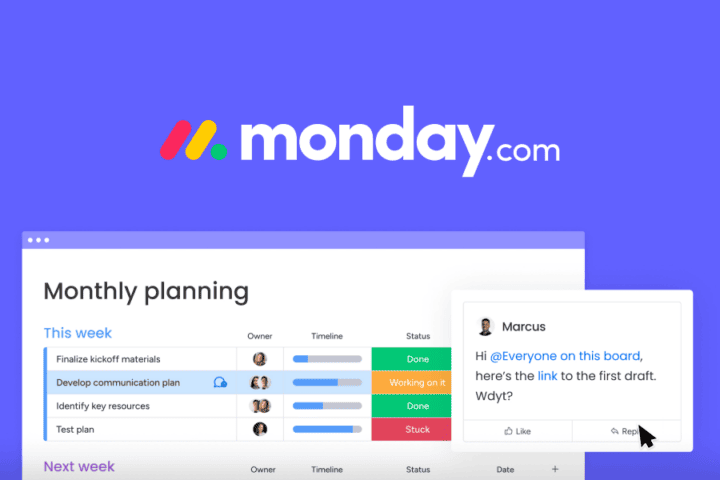The best CRM for your organization should not be the prettiest or the cheapest. It should be the one that helps you maximize customer engagement.
Sometimes the biggest enemy of a good choice is too many options to choose from. Any CRM is capable of helping you, but not every one of them can adapt to your business, so how do you choose the perfect one for your organization?
CRMs have undoubtedly become increasingly important tools within the structure of any business.
Because of this, choosing the ideal tool is key to take your users’ experience to the next level.
If you are searching for a CRM and don’t know how to choose the one that best suits your organization’s requirements, we’ll explain to you how to do it.
What does a CRM bring to your business?
Data-driven decisions
Data-driven decisions are good decisions because they are based on real consumer behaviors reflected in numbers.
A CRM gives you the ability to collect, organize and store information so that it can be used easily and quickly to generate reports and make informed decisions.
This not only makes it easier to identify customer needs but also allows us to maintain long-lasting relationships with them.
Proactive and automated service
Through the use of tools such as chatbots that use AI, the company can maintain real-time contact with leads that visit its website.
In this sense, you can also set up welcome email campaigns or even customize a Customer Journey based on customer actions.
And what is more interesting, all this can be done automatically to help you be one step ahead of your customers’ needs.
Efficiency at its best
The best CRM will help you organize information such as customer and lead data in one place, saving you time and energy when you need to find specific information.
With this, you will identify behaviors such as which ads or emails the lead responded to with a click, email open rates, and how often they talked with your sales or customer service team.
How to choose the ideal CRM for your organization?
Before you venture into choosing a CRM, you should take into account certain parameters that will help you choose the option that best suits your organization’s needs and processes.
What features are you looking for in a CRM?
The tool you choose should adapt to your business’s specific processes, customer base, and growth dynamics.
The larger your business scales, the greater the requirements and demands on your CRM will be.
An easily upgradeable tool is the ideal option to keep your software up to date, to enjoy its latest features and avoid any possible security threat.
Keep also in mind that CRMs are conceived to adapt to as many industries as possible, so there will be features that you won’t use at all.
One of the most common mistakes made by first-time users of these tools is overestimating the number of features they need. So ask yourself, do the feature of the tool adapt to the real needs of my business?
This tool will be used by several people across your organization, so choose wisely the different levels of CRM access you need to create.
Who will have access and how access and management privileges will be granted?
All of this must be stipulated before even thinking about deploying the tool.
Can it be integrated with other applications?

Scalability with other platforms or tools is another aspect to take into account when choosing the best CRM for your organization. Can it function integrally with other tools?
The search for a Customer Relationship Management tool seeks to bring efficiency to the company’s processes, not only to improve customer loyalty.
Your CRM must be able to integrate harmoniously with the ecosystem of tools you already use since a tortuous integration can be detrimental to performance.
Make sure the product you choose integrates easily with ERP and HR tools, your organization’s websites, payment and e-commerce platforms to record transactions, as well as marketing solutions such as CMS systems.
Does it offer customization and training options?
Apart from being scalable between different software solutions to preserve the workflow, the best CRM should be customizable.
Your team should be able to configure the tool both aesthetically and functionally according to the characteristics of your organization.
It is also important to consider whether the solution provider offers support and training when acquiring the tool.
YouTube’s tutorials are not enough to learn about a key tool in your organization’s business aspirations, so take training seriously.
Training is key when adopting new tools because allows you to see how the employees who will use it contribute to the organization’s performance and the achievement of objectives.
Does it offer a good user experience?
The best CRM tool will be designed to be intuitive and appealing to help new users adapt quickly and use the most of it.
Does the design of the tool help? Is it intuitive? Is there anything that makes you uncomfortable or affects your adaptation or performance?
A good user experience offers usability and great aesthetic appeal that invites new users to use the tool. Likewise, the content it displays should be structured and easy for users to access.
Make sure that the option you are considering complies with all these requirements before making the decision.
A bad user experience can lead to delays in adaptation or lack of performance, so make sure that the option you are considering offers a nice experience.
Check your data handling policies

CRMs handle large amounts of data and information about your customers and your company will travel.
Because of this, you must know how the provider is going to manage the information you handle on their platforms.
In addition, since you will be the one who also manages your customers’ information, you must be able to protect their data against any threat.
Also, you should be able to handle customers’ data easily and with enough freedom to erase data or create reports of personal data usage when requested.
Request a demo and put it to the test.
You already know that a good CRM tool should easily adapt to your organization, and integrate with other HR, ERP, and sales tools to bring efficiency to the workflow.
In addition, the user experience offered should be intuitive and attractive so that the users adapt quickly once the training provided is over.
If the CRM you are considering answers affirmatively to all these questions, it’s time to try it; if not, try Freshworks CRM.
From smart emailing, scalability with other products such as Freshteam or Freshservice, phone-email integration, and complete monitoring of your interactions with your customers; all this from the hand of artificial intelligence-powered.
At Gb Advisors, we offer you the training, support, and advice you need to choose and deploy the CRM that best suits your needs. Contact us and request a demo of Freshworks, now!




